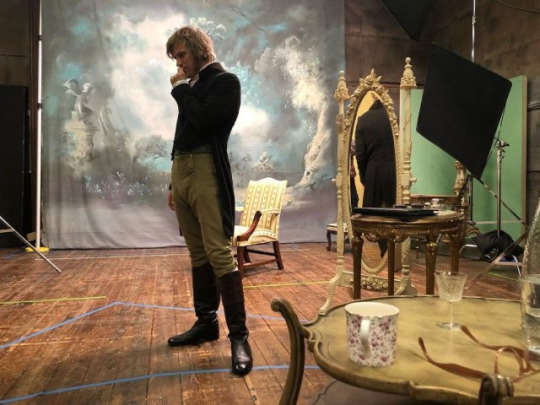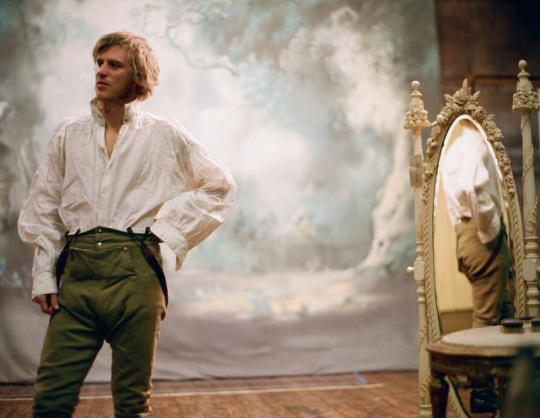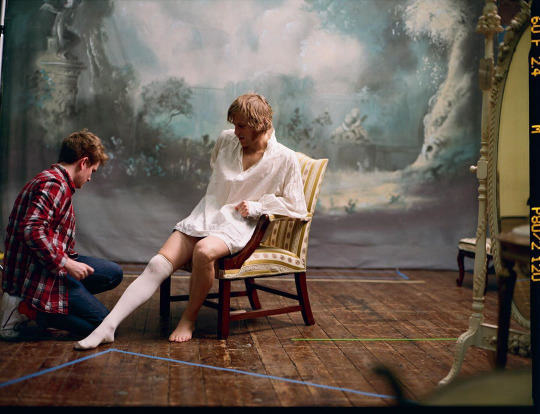Cynthia. 27. Argentina. Image and Sound Designer. Bookworm.
Don't wanna be here? Send us removal request.
Text


the venetian fog is the perfect study weather, you can't change my mind
7K notes
·
View notes
Photo







Carey Mulligan in Promising Young Woman (2020) dir. Emerald Fennell
Costume design by Nancy Steiner
6K notes
·
View notes
Photo






INTERNATIONAL WOMEN’S DAY CELEBRATION ↳ day two: favorite female-led film - Little Women (2019) dir. Greta Gerwig
“Women, they have minds, and they have souls, as well as just hearts. And they’ve got ambition, and they’ve got talent, as well as just beauty. I’m so sick of people saying that love is just all a woman is fit for.”
2K notes
·
View notes
Photo

Are you struggling to write? Do you have writer’s block? Perhaps you’re stuck in the middle of your book? One of the best ways to power through these problems is by developing a daily writing routine.
If you write every day, you create a writing habit. Professional writers have to write even when they don’t feel like it, and if you take the time to establish a habit, you will find it easier to write on demand.
One of the easiest ways to do this is by setting a time every day (preferably, but not necessarily, the same time) to write using a writing prompt. You can use our monthly prompts or subscribe to our daily writing prompts to help you do this.
If you want to know how to make the best use your prompts, we suggest you read: All About Writing Prompts & Writing Practice
A prompt can be anything: a word, a song title, a name, a myth, a photograph, or a quotation.
We hope our 30 writing prompts for November 2020 inspire you to start a writing routine.
30 Writing Prompts For November 2020
26 notes
·
View notes
Photo




A lot of people have asked me about prints of these caffeinated critters, and I’m happy to announce that they’re now available through gallery nucleus portland here! Thank you so much for your support and interest in these pieces! 💛
13K notes
·
View notes
Text

— The Picture Of Dorian Gray, Oscar Wilde
43K notes
·
View notes
Text
One of many things I love about the characterizations of Pride & Prejudice’s “core four” (Elizabeth, Darcy, Jane and Bingley) is that they’re all partially right AND somewhat wrong. It speaks to one of the book’s themes about how we all view life through the prism of our own subjective biases, experiences, hopes, fears, etc., with the result being that sometimes we’re correct while other times we end up embarrassingly misguided :)
Elizabeth totally misjudges both Wickham and Darcy’s characters and is loath to change her mind due to stubbornness and pride, but she’s completely correct in predicting that Lydia is going down a dangerous path and in knowing that Jane and Bingley care for each other very deeply.
Darcy is utterly misguided when it comes to assessing Jane’s feelings for Bingley and in clinging to his own haughty reserve and rigidity. He’s right, however, about maintaining that actions reflect a person’s real character far more than charming manners ever could and clearly has an accurate read on not just Elizabeth but Bingley, Bingley’s sisters, etc.
Jane is wrong in not initially letting herself see the truth about Caroline Bingley, Wickham or anyone else and keeping many of her real feelings and opinions to herself, but she assessed Bingley correctly from the start and was certainly correct about generally giving people the benefit of the doubt (as Elizabeth eventually did with Darcy!) and in her belief that we have to ‘allow for differences in temperament and situation’ before condemning others’ choices.
Bingley was completely right in maintaining from the outset that Jane and Elizabeth shouldn’t be condemned for the ‘situation’ (i.e. lack of money and status!) or even behavior of their relatives (”If they had uncles enough to fill all of Cheapside,” cried Bingley, when his sisters were being insufferably snobby and Darcy was pointing out that their family connections make them less desirable matches, “it would not make them one jot less agreeable!”) He was wrong, however, in allowing himself to be persuaded that Jane didn’t love him, guided by his own insecurities and desire to avoid conflict with Caroline, Darcy etc. rather than trusting his own feelings and desires—and Jane’s.
By the end, though, Elizabeth has learned not to be so quick to criticize before truly knowing someone and discovered that allowing herself to revise her initial judgments is actually a sign of strength. Darcy has worked to become markedly less snobby and prideful and a somewhat more open person. Jane has matured to the point where she can now acknowledge the reality that not everyone and everything is good just because she wishes they were (including her awful new sister-in-law!) and is even a tad more assertive while still retaining her fundamentally optimistic, sweet and forgiving nature. Bingley learns to trust himself and pursue what and who he wants rather than relying more on Darcy’s judgment than his own or trying not to make waves. (Interestingly, Darcy and Elizabeth both needed to have a bit LESS pride in their own opinions, judgments etc. while Jane and Bingley both needed to have a bit MORE pride/confidence in themselves!)
The thing that makes P&P such an ultimately hopeful piece of literature for me is the message that when we ARE in the wrong, which we’ll all be quite a lot, we can make an effort to change, grow and correct our mistakes :)
1K notes
·
View notes
Text



johnny flynn as mr. knightley / george knightley in emma (2020) in the various state of undress
3K notes
·
View notes


















